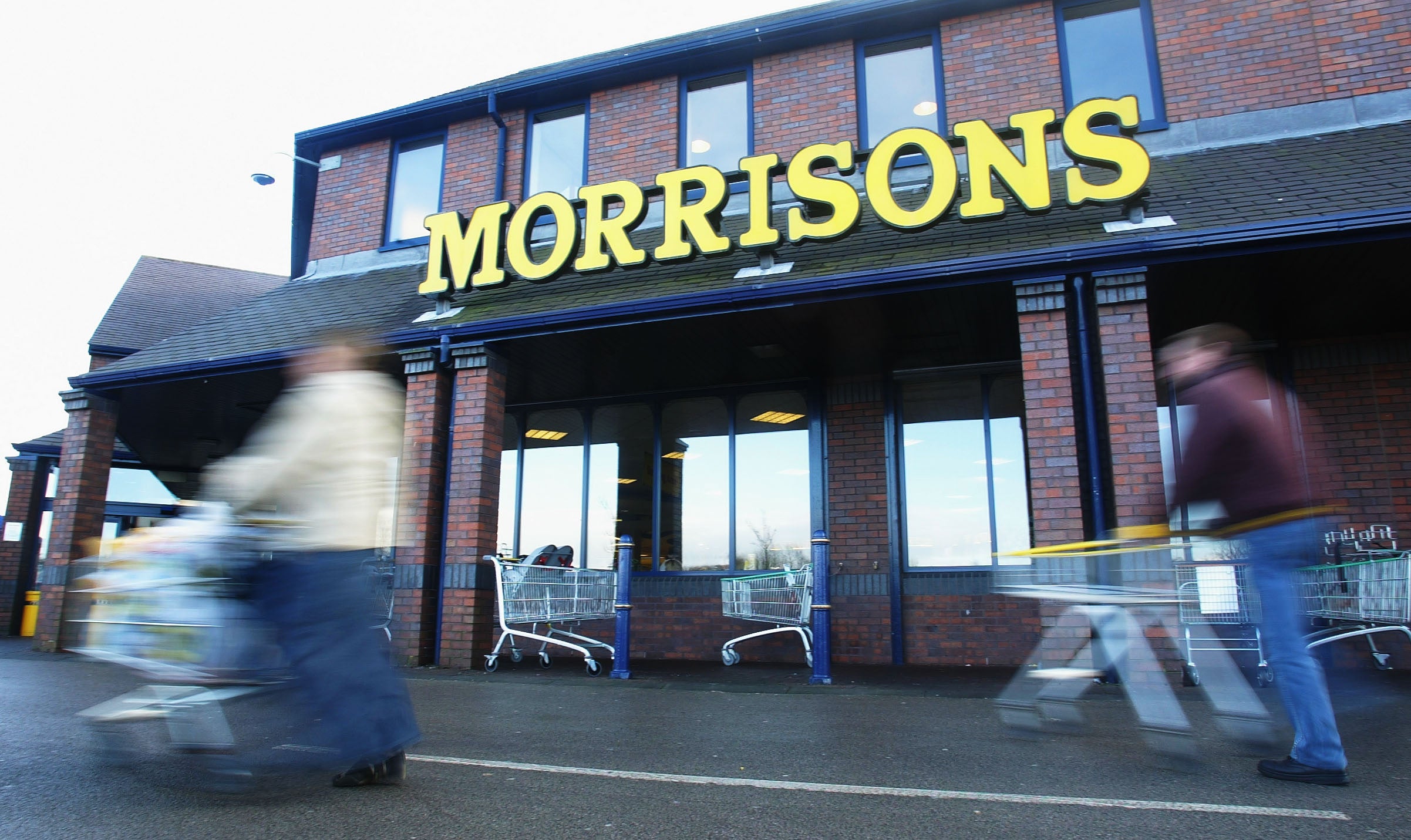Should Morrisons have hiked dividend after business rate holiday?
The group benefitted to the tune of £93m from the temporary tax break and is handing £49m to shareholders, an increase of nearly 6 per cent

Should Morrisons really be hiking its dividend after having received a fat subsidy from the government?
That debate is live again after Britain’s number four supermarket hiked its pay out by nearly 6 per cent to £49m. The group reported £155m of extra Covid-related costs, including the need to take on hordes of extra staff who had to be paid.
Cushioning the blow: £93m worth of business rate relief courtesy of the government’s business rate holiday.
Profits still fell by a quarter. But there’s more help to come. By the time we get to the full year, the company expects all the extra Covid costs to be offset by benefits, which also include higher sales.
Chief executive David Potts defended the tax holiday saying that the latter helped the business to keep operating and employing workers while other shops were closing.
He also said that “the nation relies on our shareholders to provide assets” so Morrisons can “play our part in feeding the nation”.
Neither of those arguments holds up to cursory analysis.
The fact that Morrisons is throwing off sufficient capital to justify a sharply higher dividend suggests that it would have managed to do just fine without the holiday.
As for this “feed the nation” line, which all the supermarkets have been putting out, please.
Morrisons staff deserve to be thanked for the roles they played during the height of the pandemic given they were putting their lives at risk by turning up to serve customers in its stores.
Morrisons shareholders don’t. They handed the company their capital in the hopes of a reward, which they have received. They would still have been rewarded had the holiday not been there, just by a bit a less.
Of course, Morrisons is hardly alone in being a successful business to take advantage of the holiday and hike its dividend as a result.
Its larger rival Tesco did the same thing when the optics were much worse. It paid out when the pandemic was raging and “feeding the nation” was sometimes, shall we say, hit or miss especially when it came to those people stuck indoors through being exposed to the virus, without the means to call on help or secure online orders.
But is it really fair to put the heat on Morrisons, and it is right to focus on the dividend?
While companies can be taken to task for emphasising them to the exclusion of, say, investment, dividends are not the devilish invention that they are sometimes portrayed as.
Businesses are supposed to pay them to their shareholders when they’re able to do so. It bears repeating that those dividends often go towards boosting our savings and pensions.
As for the rate holiday, it was a blanket measure introduced by a government facing the very real prospects of the mass collapse of businesses in the middle of the lockdown.
What Morrisons CEO Potts didn’t want to say, because it’s an inconvenient truth, is that the company took advantage of the holiday because it was there and because its competitors did the same.
It’s unseemly for the state to effectively be subsidising successful, profitable companies like the supermarkets. But far worse financial shenanigans have been going on through the course of the pandemic, including the fraudulent use of the job retention or furlough scheme.
As a postscript, it is also worth noting that Morrison’s and Tesco and Sainsbury’s and the others, still pay an awful lot more tax than does, say, Morrison’s business partner Amazon, that has once more been coming under fire for the pittance it pays into the exchequer come rain or shine.
Last year’s figure was £293m, a rise of 3 per cent despite the 26 per cent rise in revenues reported by its UK business. Amazon is steadily extending the reach of its UK grocery business. Its rock bottom bills fuel its ability to do that, and to compete aggressively with its rivals in whichever business it chooses to enter.



Join our commenting forum
Join thought-provoking conversations, follow other Independent readers and see their replies
Comments